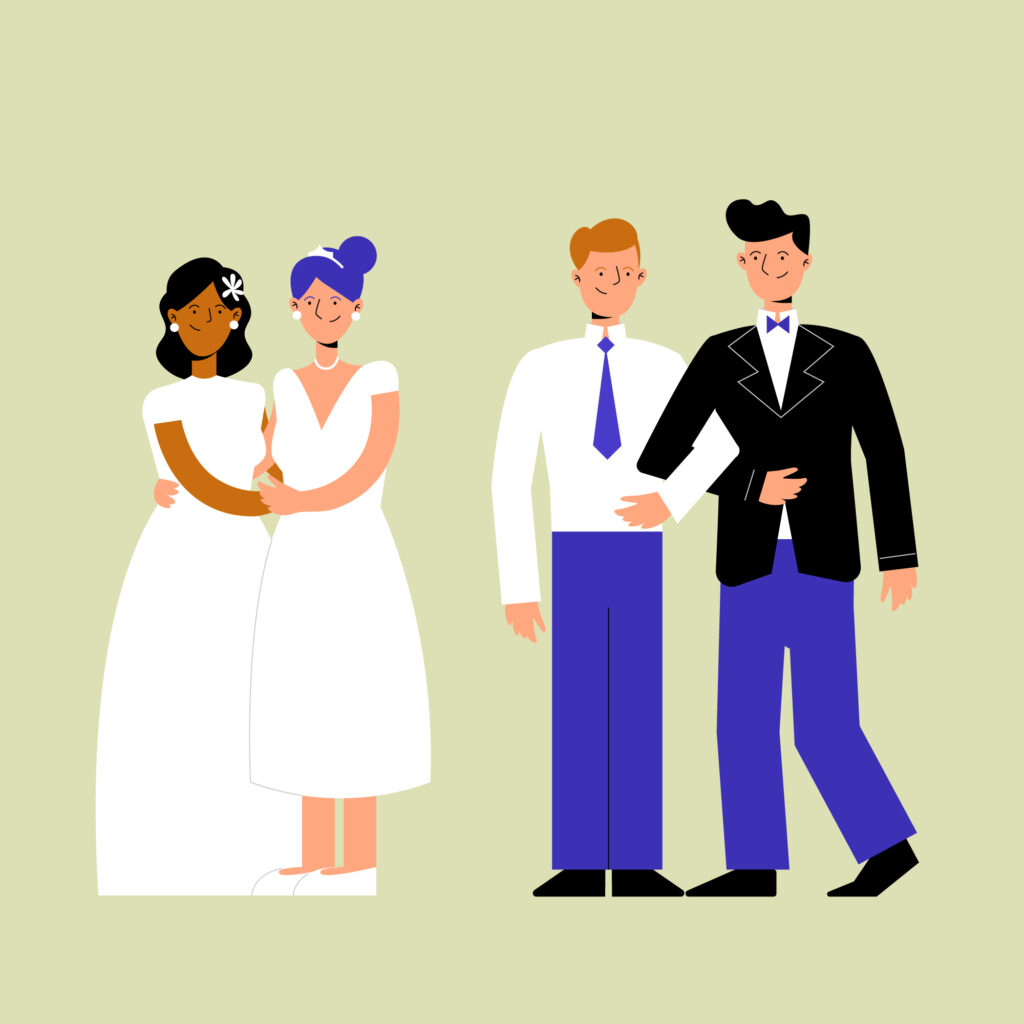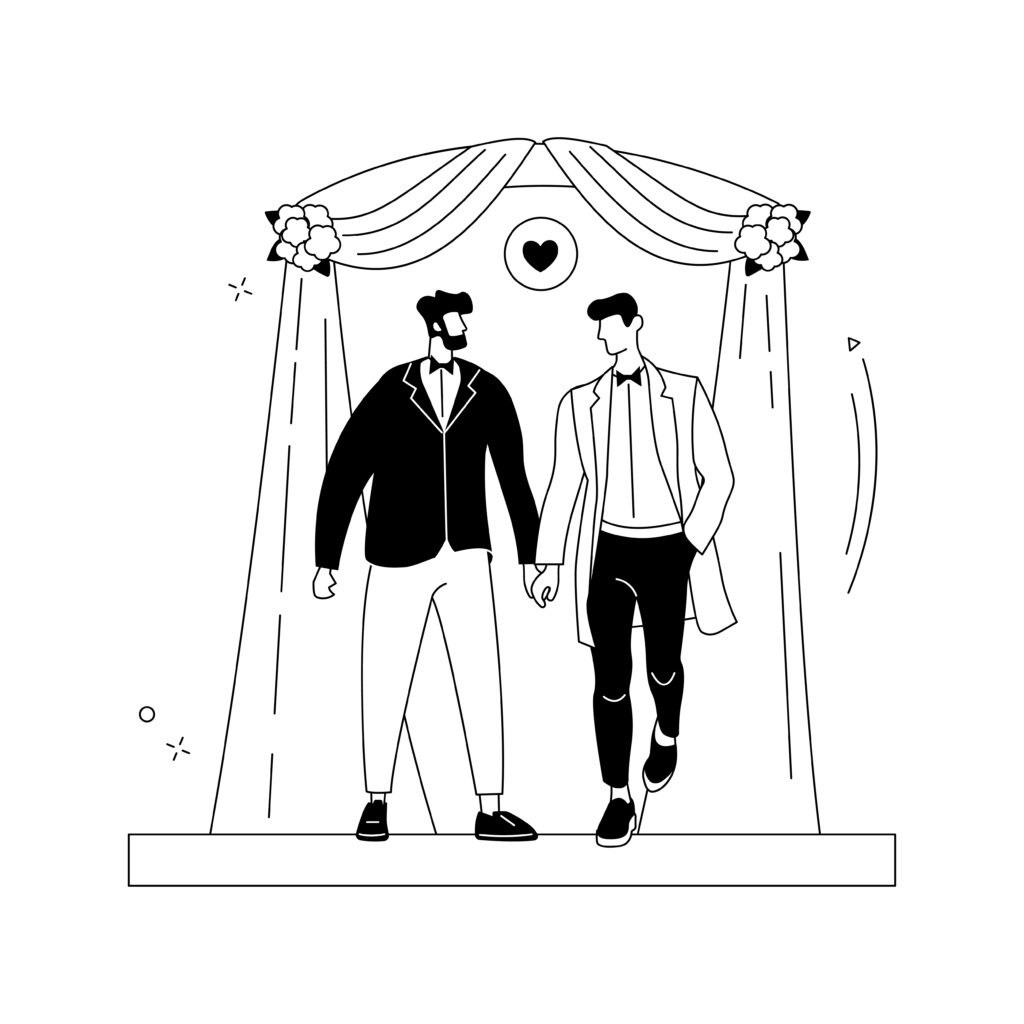Last updated on December 20th, 2024 at 12:45 pm
As society continues to evolve, discussions surrounding LGBTQ+ rights and issues have become increasingly prominent. One of the most debated topics is whether gay marriages are equivalent to heterosexual marriages. In this article, we will explore the similarities and differences between these types of marriages and emphasize the importance of recognizing the equality of all marriages.
What is Marriage?
First and foremost, it is important to understand what marriage is. Marriage is a legal union between two individuals who have chosen to commit to one another and share their lives together. This union is recognized by law, religion, or both. Marriage is a fundamental human right and should be accessible to all individuals, regardless of their sexual orientation.
Similarities Between Gay and Heterosexual Marriages

The similarities between gay and heterosexual marriages are numerous. Both types of marriages involve two people who love each other and have chosen to commit to one another for life. They share their lives together and build a future with each other. They both encounter similar challenges, such as balancing work and family life, and navigating the ups and downs of relationships.
Additionally, both types of marriages carry legal and financial implications. Gay and heterosexual couples who are married are entitled to the same legal rights and protections, including inheritance rights, tax benefits, and the ability to make medical decisions for their partner.
Differences Between Gay and Heterosexual Marriages
One of the most significant differences between gay and heterosexual marriages is the societal attitudes and stigmas that have historically been associated with being LGBTQ+. Despite recent progress, discrimination and bigotry against the LGBTQ+ community persist, which can affect the experiences of gay couples who are married.
Another difference is that gay and heterosexual couples may encounter different legal and financial challenges regarding their marriages. For instance, gay couples may need to navigate adoption and surrogacy laws, as they might not be able to conceive children naturally. Furthermore, legal protections for gay couples can differ by state or country, resulting in some discrepancies in their rights and protections.
Why Recognizing Equality Is Important
It is essential to acknowledge that all marriages are equal, regardless of the sexual orientation of the individuals involved. Marriage is a fundamental human right and should be accessible to all individuals who choose to commit to one another. Recognizing the equality of gay marriages is not only a matter of fairness; it also fosters a more just and equitable society.
Additionally, acknowledging the equality of all marriages can positively impact individuals, families, and society as a whole. By fostering acceptance and understanding, we can build more inclusive communities that embrace diversity and support all individuals.
What are the legal benefits of same-sex marriage?
Same-sex marriage offers a variety of legal benefits to couples, such as the ability to file taxes jointly, access social security and Medicare benefits, and secure inheritance rights. Furthermore, same-sex marriage can ensure legal protections during medical emergencies, enabling a partner to make crucial medical decisions on behalf of their spouse.
What are the psychological benefits of same-sex marriage?
Research indicates that same-sex marriage can provide substantial psychological benefits, such as enhanced self-esteem, better mental health outcomes, and higher life satisfaction. These advantages are especially evident in areas where same-sex couples have had the opportunity to marry for a prolonged period.
How Has Public Opinion on Same-Sex Marriage Changed Over Time?
Public opinion on same-sex marriage has shifted significantly in recent years, with a growing number of people expressing support for marriage equality. In 2004, only 32% of Americans were in favor of same-sex marriage, whereas by 2021, that figure had increased to 70%. This change in public sentiment has been influenced by several factors, including greater visibility of LGBTQ+ individuals in the media and the advocacy efforts of LGBTQ+ rights organizations.
How Have Legal Challenges Impacted the Fight for Same-Sex Marriage?

Legal challenges have been crucial in the struggle for marriage equality, with landmark cases such as Obergefell v. Hodges leading to the nationwide recognition of same-sex marriage in the United States. These legal battles have been led by organizations like the Human Rights Campaign and Lambda Legal, which have diligently worked to promote LGBTQ+ rights through the legal system.
What challenges do same-sex couples still face in their pursuit of marriage equality?
Although significant progress has been made in recent years, same-sex couples still encounter various challenges in their pursuit of marriage equality. These challenges include discriminatory laws in certain jurisdictions, a lack of legal recognition in some countries, and ongoing prejudice and discrimination from certain individuals and institutions. Furthermore, the fight for marriage equality is part of a broader struggle for LGBTQ+ rights, necessitating continued advocacy and activism to ensure full equality for all members of the community.
Conclusion
In conclusion, the debate over whether gay marriages are equivalent to heterosexual marriages is a complex issue. Although there are some differences between these types of marriages, it is crucial to acknowledge that they share numerous similarities, and that all marriages should be regarded as equal. By fostering equality and acceptance, we can build a more just and equitable society that celebrates diversity and supports all individuals.


